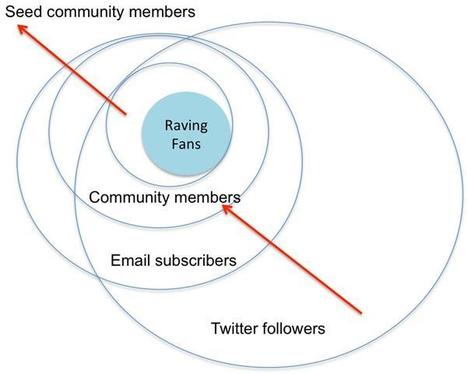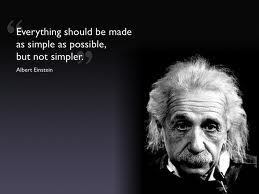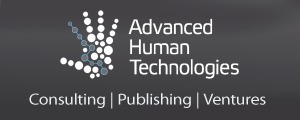 Your new post is loading...
 Your new post is loading...
This is a great article on curation from Finger Tips Music. There is much confusion out there, some people say content curation is just a buzz word, it is so much more and what I've highlighted below is just the tip of the iceberg. Curated by JanLGordon covering Content Curation, Social Media & Beyond Here's what caught my attention: Curating is not just filtering ****Curators must keep selections to a rigorous minimum. **One long-running model is the site Very Short List, which selects but one thing a day to inform you about. ****The difference between filtering and curating is, however, more than quantitative. ******A curator aims to present web content in a manner that removes it from the medium’s inherent endlessness as well as its relentless robotic-ness. ****** This can be done only with the care and attention of an individual intelligence. *******A curator, alive to context and nuance, has a voice, a sensibility, a vibe; there is something inherently idiosyncratic about curating. http://www.fingertipsmusic.com/?p=7732
Via janlgordon
This piece was written by Oscar Berg (@oscarberg) for CMS Wire and curated by JanLGordon covering her topic "Content Curation, Social Media and Beyond" on Scoopit. I was especially drawn to this article in relation to Scoopit, as I know from discussions I've had with Guillaume Decugis, this very much speaks to his vision of what this platform could and should become. **By sharing content and helping each other source, review and curate topics of interest, we stay informed, expand the conversation and contribute to others. It's like a collective intelligence of sorts. **An essential part of community building is giving others credit if you repost their content and thanking them for posting it. Intro: "Since the dawn of time, primates have relied on social networks to help the whole group with their environments. This of course applies to humans and our enterprises as well." Here's what caught my attention: Understanding the Dynamic of Your Networks Today we also have information technologies such as social software that anyone can use to build, nurture and make use of their informal networks. **And as the informal networks become visible, they become more usable to both individuals and organizations **as we can better understand their dynamics and how to make proper use of them. **In an environment where change is business as usual and being **more responsive, agile and innovative is the only way to adapt to the environment, who can afford not to understand the dynamics of networks and harness their power with the use of social technologies? Why and for how long? http://www.cmswire.com/cms/social-business/dont-underestimate-the-power-of-networks-012890.php
Via janlgordon
Great piece by Brian Solis who is one of my favorite people.....he never disappoints. This sums it up and it's profound - Facebook has the social graph and this hits all of us where we live: “Timeline is the story of your life,” said Mark Zuckerberg “All your stories, all your apps, express who you are.” For those who focus on the debate between Facebook, Google Plus and Twitter are missing the true story. Today at Facebook’s f8 developer conference we were reminded of the what the story really is, It's about you and me............ Excerpt: “For the first time ever in a single day we had 500 million people use Facebook” – Mark Zuckerberg No, it’s not about features, capabilities, or the number of users. Profound! We were reminded about the power of something much more important, our experiences, relationships, the content we create and share and how each paint a picture of who we are as individuals. Today Facebook introduced features for its users and developers alike that position Facebook not as a social network, but instead as a platform for storytelling and meaningful engagement. How is this different than the profile you’ve come to know over the years? The team at Facebook explains… Timeline is a new kind of profile, one that lets people tell their story in a visually-rich and artistic fashion. In addition to aesthetics, Timeline is essentially a social home page for all that moves you, from media to experiences to people. The biggest difference you’ll notice is presentation. Starting with the substantial image that you choose to depict your persona, the new format essentially turns your profile into a Flipboard-esque (magazine) pictorial rich with updates, content, and connections…all designed to tell your story, your way. Don’t be confused by the name however, Timeline is much more than that, it’s essentially a storyboard for your digital and real life as told by what you share and what others share with you. http://www.briansolis.com/2011/09/the-new-facebook-a-timeline-for-personal-discovery/
Via janlgordon
I posted this a few weeks ago, I'm sure not everyone saw it and it is definitely worth posting again. Lots of information and strategy. Nine ways to make curation work for your brand. Become a Content Curation King Sean Carton | August 29, 2011 "Curation" is a buzzword (even if it isn't technically a word…unless you count the 14th century French definition meaning "to cure") that's smokin' up the interwebs these days. Launching into the blogosphere virtually from nowhere in 2009, it's now one of those terms that's essential to any digital marketer on the cutting edge (or for anyone who wants to sound like one). Curation has now come to mean the act of sorting through the vast amounts of content on the web and presenting it in a coherent way, organized around a specific topic(s). However, unlike automated services (such as Google News), the essential difference of curation is that there's a human being doing the sifting, sorting, arranging, and publishing. Just as a museum curator must decide which artifacts to display during an exhibition, an online curator decides what information available online is appropriate and relevant to her audience. Making curation work for your brand is a lot easier said than done. As countless would-be content curation kings (and queens) have found out, just gathering a lot of links together doesn't guarantee anything except that you'll spend a lot of time curating links. You need to commit resources to both curation and promotion if you're going to be successful. And that's just the first step. To truly succeed as a curator, you need to think like a curator (not just an aggregator) and keep the following in mind: http://www.clickz.com/clickz/column/2104954/content-curation-king
Via janlgordon
This post was written by Tony Karrer from Aggregage He has some interesting things to say about an article he read by Ville Kilkku, which was all about the future of content curation, the title of the piece he's referring to in this post is "Klout, Triberr, paper.li, and the future of content curation". Intro He says,
"Reading this article made me realize that people curation should be a lot of what we are really talking about here. But before I get to that, let me step through what he talks about. He takes us through a few different models of content curation. I’m going to need to compare these to my post on Marketing via Aggregation, Filtering and Curation – Tools and Resources to see if this classification changes things."
He then talks about three major trends in content curation: From individual content curators to crowdsourced content curation: Individuals cannot keep up with the pace of new content, even though they have better discovery tools than before. Crowdsourcing can, although it is not suitable for promoting radical new ideas: the dictatorship of the masses is unavoidably conservative. From manual to semi-automated content curation: Individual content curators are forced to automate as much of the process as possible in order to stay relevant. From content curation to people curation: When there is too much content, you vet the content creators, manually or automatically. Those who pass get exposure for all of their content. What caught my attention: How do these trends interact? Social networking of the content creator is vitally important in order to create an audience as isolated content becomes increasingly difficult to discover and curation focuses on people instead of individual content. Build it, and they will come, is dead. http://www.aggregage.com/blog/curation/people-curation
Via janlgordon
Great article on how to find hidden treasures using answer sites, a great resource for finding content. Written August 25th, 2011 • By: Arnie Kuenn • Content Marketing "Answer sites might just be the perfect marriage of social media and search." The basic concept behind an answer site is that people can post a question hoping to get it answered by someone knowledgeable in the subject matter. The answers can be powered by public knowledge with consensus determining the “best” answer. Answer sites offer users the ability to be both the inquisitor and the expert. Generally, in human — shall we say, analog — interaction, we can answer each others questions based on our personal experiences. Answer sites make it possible to do this on a massive scale. This often means that the turnaround for a question is relatively fast; many questions get answers in less than a day. In fact, most questions have already been asked and answered, so getting an answer to common questions can be almost instant. http://www.verticalmeasures.com/content-marketing-2/answer-sites-can-be-a-content-research-gold-mine/
Via janlgordon
Urbanspoon has signed a deal with Zagat that will see over 25,000 Zagat reviews featured prominently on Urbanspoon. Urbanspoon has signed a deal with Zagat that will see over 25,000 Zagat reviews featured prominently on Urbanspoon. Urbanspoon tells WebProNews, “”We’re excited to be working with Zagat – the pinnacle of high end restaurant reviews. Providing diners with easy access to Zagat reviews directly on their smartphones will make it even easier to select the best dining options.” “Our goal at Urbanspoon is to give users the most accurate, in-depth look at local restaurants to help inform their decision about what new spots to try and which favorites to keep on their go-to list,” said Urbanspoon GM Kara Nortman. “Bringing in content from Zagat, arguably the most famous name in restaurant reviews, adds another layer of trusted insight to help people find the best restaurants in their cities.” Zagat’s ratings and recommendations for restaurants will appear alongside Urbanspoon’s aggregated content. Users will be able to access the reviews along with general business info, photos and related blog posts. This is the whole piece, there's a visual to show you how it'll look when you click here and scroll to the bottom. http://www.scoop.it/t/content-curation-social-media/p/418629223/curation-at-it-s-best-urbanspoon-adds-zagat-reviews
Via janlgordon
This is a glitch in search today but someone is building a better mousetrap and we just have to live with the noise for the time being. Hopefully those of us who curate are helping people find good, relevant pieces on a particluar topic as things evolve. Intro: Like it or not we are a search driven society. Thus this post could have easily been titled, "Content for content's sake" or "Crappy content for search engines", or "The difference between worthle. Good content takes time. Good content that we may value, may take even longer to produce and in some cases may take longer to find. Why? If the person who has authored it has not written equally for search engines as well as for their audience, and if it doesn’t possess the ”right” linkage and properties that meet Google’s search algoritham-it may fall quietly by the wayside. Thus we have more noise than signal and more of a glut of worthless, search friendly content. http://directmarketingobservations.com/2011/08/15/search-quality-content-is-an-oxymoron/?blogsub=confirming#subscribe-blog
Via janlgordon
|
Interesting statistics from Media Bistro Key Takeaways - *Twitter is the all-time champion of sharing, with growth of some 35,356% over the last five years, leading Facebook (5,809%) and LinkedIn (3,226%) *Over the past year, Facebook’s Send button has seen growth of 756%, beating Tumblr (532%) and Google’s +1 button (418%) *The peak hour for sharing each day is 9.30am EST (Wednesday is the peak day) *Most users click 2 minutes after content is shared *The bulk of sharing takes place via copy and paste Curated by JanLGordon covering "Content Curation, Social Media & Beyond"
Via janlgordon
Not all that long ago (think 2002), people would think you were crazy when you talked about **the powerful intersection of community and content. Online communities? Those died in the dot com bust. Today, marketing professionals are starting to come around, but they still have a ways to go. **Few people fully grasp how the interplay between content and community can change how organizations function internally and externally. Previous articles in this series have addressed content, so let's now turn our attention to community. Today, the role that community can play in the marketing and communications process is woefully misunderstood. Many organizations are not actively involved in community efforts, and those that are tend to focus on community for three reasons.: Support: Enabling customers and advocates to support and inform each other, providing self-serve customer service, or offering support via social network monitoring (e.g., Comcast's efforts via @comcastcares)Reputation: Intersecting with communities, social network presences of interest, and influencers in an effort to build reputation Research: Using small private communities like a marketing petri dish—a closed, controlled space where customers can be studied **The real value of customer communities, however, is quality and efficiency—efficiency of reach, feedback, communication cycles, and amplification. Read more: http://www.marketingprofs.com/articles/2011/6007/how-communities-are-changing-marketing-and-four-community-building-lessons#ixzz1ZBDLVebx
Via janlgordon
Brandon Freund writes this article for Basic Blog Tips from the perspective of Bloggers, but the basic message is as powerful for Content Curators: "There’s one thing you have that no other blogger does – and that one thing is the key to setting your blog apart from the rest..... That one thing is you. No other blog but your own has you. You are the fountain of unique content for your blog..... The difference between you and the other bloggers is that none of them have lived the life you have." http://basicblogtips.com/writing-unique-content.html
Via janlgordon
Einstein said "everything must be made as simple as possible, but not one bit simpler". That concept, often tied to Occam's Razor, is very powerful when looking at new theories and models. I decided to apply this process to social business and in so doing something emerged that I believe is very useful in understanding social in the enterprise. In a document that we published last year called The Social Business Framework, we explored the two key levers that can be applied to socialize business, content and community. A year later and after quite a bit of research on social business, I now believe that there was a missing element beyond content and community that is critical for building a complete enterprise social strategy. This third element is collaboration. http://www.enterpriseirregulars.com/41540/the-three-cs-of-social-business/
Via janlgordon
Absolutely fascinating! Intro: In 2008 the number of devices connected to the Internet surpassed the number of people connected, and in 2020 there will be 50 billion things connected, 7 times the world’s population, according to Dave Evans of Cisco. The infographic below highlights some of the key features of the Internet of things, including the pace of growth, how external data can be aggregated so that your alarm clocks, cars, and coffee makers make decisions to fit with your schedule, and that some cameras and computers are now just a cubic millimeter. An amazing statistic is that by end of 2011, 20 typical households will generate more Internet traffic than the entire Internet in 2008. That is slightly unbelievable, and I would like to know how they define ‘typical’ and what data is generated for Internet communication. However it is important to recognize that the Internet of things is one of the most important ways to understand our connected future. Pervasive connectivity, and the amazing things we will be able to do with that, will shape our lives. http://rossdawsonblog.com/weblog/archives/2011/09/the-internet-of-things-will-dwarf-the-internet-of-people.html
Via janlgordon
Great article on how to find hidden treasures using answer sites, a great resource for finding content. Written August 25th, 2011 • By: Arnie Kuenn • Content Marketing "Answer sites might just be the perfect marriage of social media and search." The basic concept behind an answer site is that people can post a question hoping to get it answered by someone knowledgeable in the subject matter. The answers can be powered by public knowledge with consensus determining the “best” answer. Answer sites offer users the ability to be both the inquisitor and the expert. Generally, in human — shall we say, analog — interaction, we can answer each others questions based on our personal experiences. Answer sites make it possible to do this on a massive scale. This often means that the turnaround for a question is relatively fast; many questions get answers in less than a day. In fact, most questions have already been asked and answered, so getting an answer to common questions can be almost instant. http://www.verticalmeasures.com/content-marketing-2/answer-sites-can-be-a-content-research-gold-mine/
Via janlgordon
Great post written by Eric Brown for Social Media Explorer - This is what caught my attention: Curation — the act of human editors adding their work to the machines that gather, organize and filter content. “Curation comes up when search stops working,” says author and NYU Professor Clay Shirky. But it’s more than a human-powered filter. “Curation comes up when people realize that it isn’t just about information seeking, it’s also about synchronizing a community.” Part of the reason that human curation is so critical is simply the vast number of people who are now making and sharing media. “Everyone is a media outlet”, says Shirky. “The point of everyone being a media outlet is really not at all complicated. It just means that we can all put things out in the public view. http://www.socialmediaexplorer.com/social-media-marketing/is-content-curation-the-new-community-builder/
Via janlgordon
This is a glitch in search today but someone is building a better mousetrap and we just have to live with the noise for the time being. Hopefully those of us who curate are helping people find good, relevant pieces on a particluar topic as things evolve. Intro: Like it or not we are a search driven society. Thus this post could have easily been titled, "Content for content's sake" or "Crappy content for search engines", or "The difference between worthle. Good content takes time. Good content that we may value, may take even longer to produce and in some cases may take longer to find. Why? If the person who has authored it has not written equally for search engines as well as for their audience, and if it doesn’t possess the ”right” linkage and properties that meet Google’s search algoritham-it may fall quietly by the wayside. Thus we have more noise than signal and more of a glut of worthless, search friendly content. http://directmarketingobservations.com/2011/08/15/search-quality-content-is-an-oxymoron/?blogsub=confirming#subscribe-blog
Via janlgordon
|



 Your new post is loading...
Your new post is loading...







![Twitter, Facebook, LinkedIn: How, When And Where Do People Socially Share? [INFOGRAPHIC] | information analyst | Scoop.it](https://img.scoop.it/i3FgAO73Fe4khzj0zgSfEzl72eJkfbmt4t8yenImKBVvK0kTmF0xjctABnaLJIm9)










